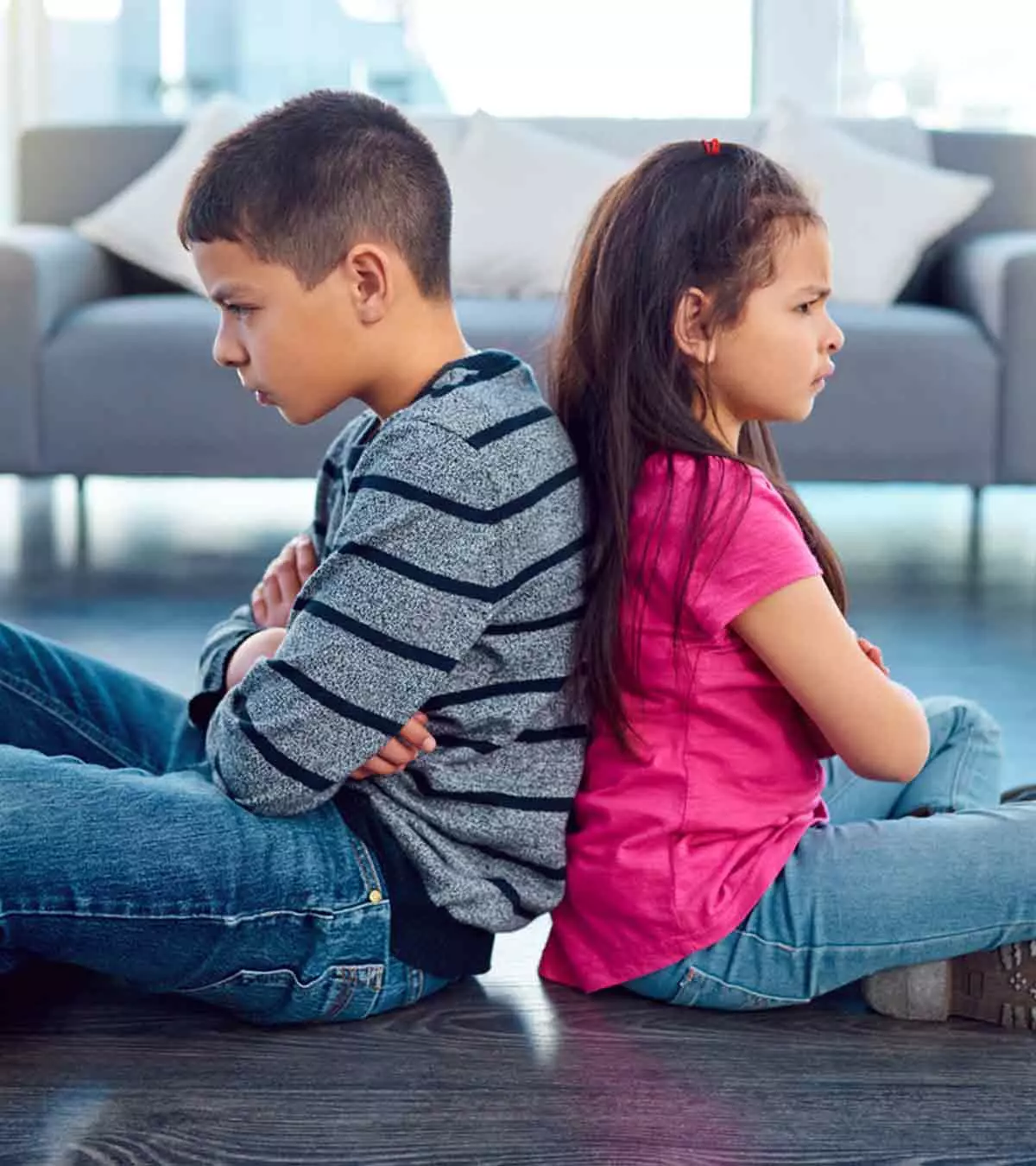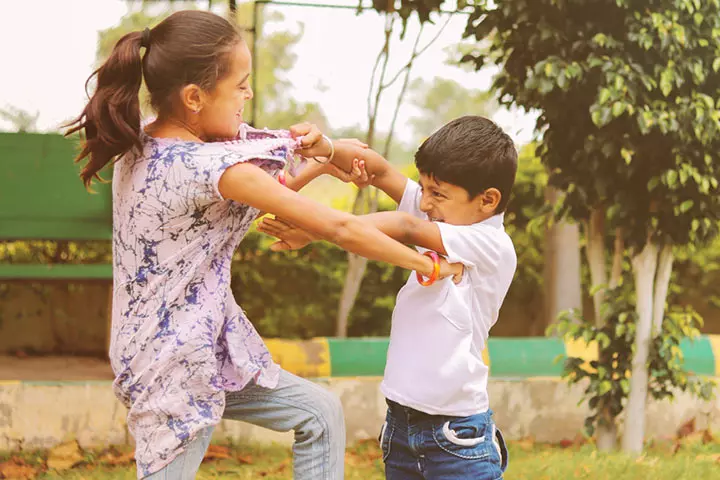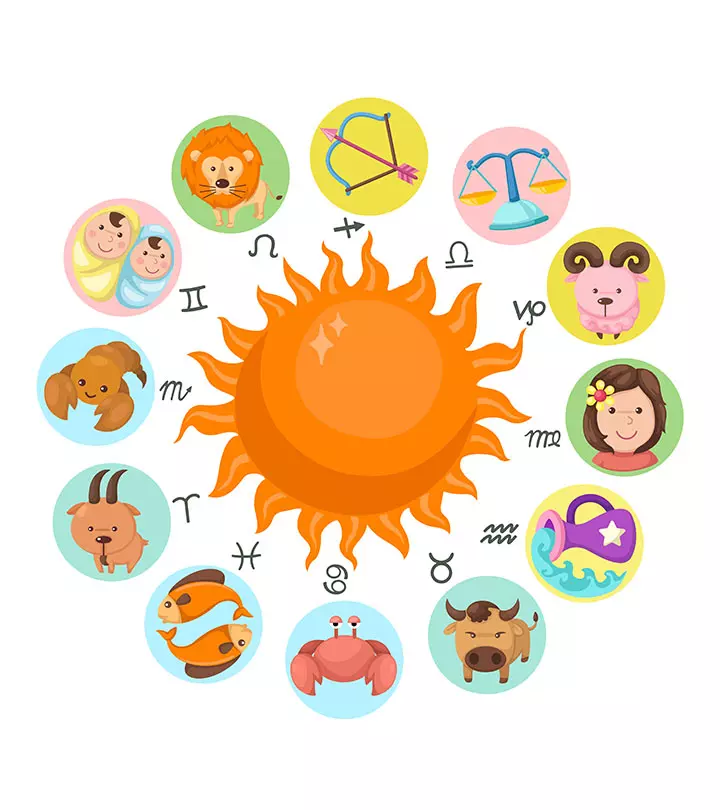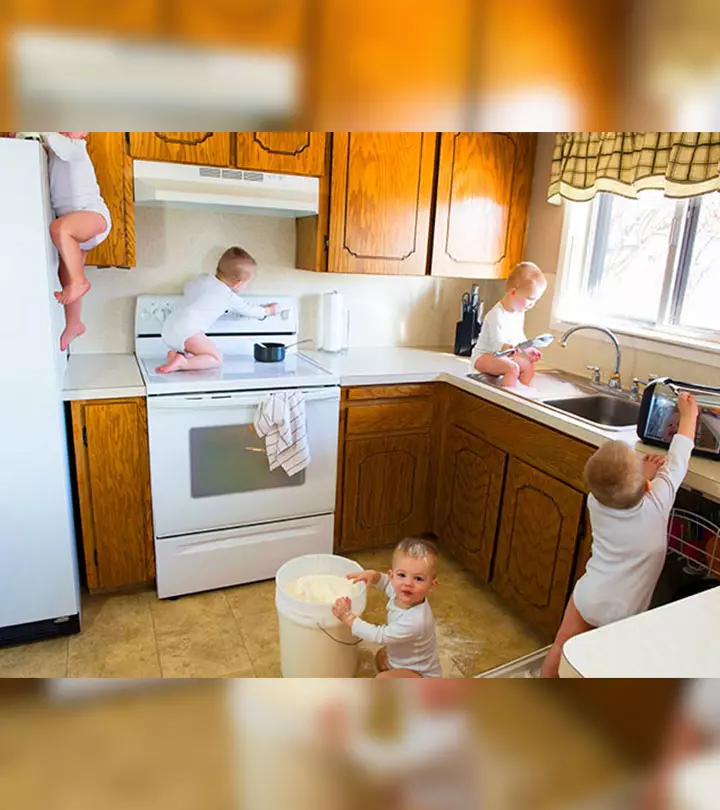
Image: Shutterstock
Siblings share a strange relationship, and there are no two ways about it. If you grew up with a sibling, the chances are that you loved them a lot but also fought with them like they are your worst enemy. You will readily lay down your life for them if ever the need, but then you will also quarrel over something silly like sharing food or clothes. Sounds relatable, right? If you grew up with siblings, you know exactly what we’re talking about. However, while this love-hate relationship with your siblings was all fun for you, it was probably hell for your parents. And until you became a parent yourself, that was probably something you never gave much thought to.

Keeping kids from fighting with each other is a herculean task, and you don’t realize it until you have to deal with the little devils yourself. So, if you are a parent who struggles with keeping your kids from ripping each other’s throats apart, you’ve stumbled on to the right place. We are here with some tips that might help you keep your kids from killing each other:
1. Let Them Work It Out

Image: IStock
When your kids are engaged in an argument or some form of disagreement, without resorting to aggressiveness or violence, it’s better to let them sort it out among themselves. Kids learn better through disagreements, compromises, and arguments. If you intervene every time they have even the slightest of disagreement, you will not be giving them a chance to learn how to resolve disputes. So next time you get tempted to say something, try your best to stay out of their affair. However, it would be advisable to keep an eye on them from a distance, so that you can step in if it gets out of control in any way.
2. Do Not Jump To Conclusions

Image: Shutterstock
Kids are super innocent. They can be naive and gullible too. But let’s not forget that they can also be tiny brats when they want to be. If you didn’t witness what happened, it’s best to avoid jumping to conclusions. Kids have a way of playing the blame game with their parents, especially if they know they are one of their favorites. When you jump to conclusions and assume that one kid is at fault, it puts the other kid at an unfair advantage. It might even lead to breeding severe resentment and frustration. Therefore, hear both sides of the story before you come to a decision.
3. Step In When Needed

Image: Shutterstock
You might be confused because we just said that you shouldn’t intervene when your kids are fighting. However, that cannot be a rule set in stone. Sometimes, kids can be nasty. They can be bullies and hurtful. If you see that your kids are mean and cruel to each other, don’t be afraid to step in and teach them right from wrong. It’s normal for kids to fight, but they must know that it’s essential to be respectful even during fights.
In some cases, kids may lose their temper, and it could lead to physical fights. Intervene and stop them. It could lead to injuries and irreparable damage.
4. Be Aware That You Could Be Rewarding The Wrong Behavior

Image: IStock
Some kids get into fights with their siblings simply because they want attention. In such cases, giving them attention would prove to cause further problems. Your kid might get used to the attention and continue to engage in negative behavior. Therefore, be aware of what behaviors you are rewarding. One of your kids might complain about the other just to start a fight. As a parent, you should pay attention to what your kids are saying and speak to them separately to understand both sides of the story. Sometimes, all they need is some kind words, appreciation, and quality time.
Do not reward negative behavior as it could lead to further behavioral issues as your kids grow up. They might start creating problems out of thin air just to get some attention. They might also want to be in the limelight and, as a result, end up rousing fights with their siblings. So, be mindful of their actions and take the necessary steps to combat them.
5. Let Both Kids Feel That They’re Equally Loved

Image: Shutterstock
Siblings have an age gap between them and parents would usually treat each the way it’s appropriate for their age. However, this can lead to a rise in jealousy among them. A common example of this is parents treating the younger sibling with more adoration, or carrying them on their backs and also forgiving their mistakes more easily. The older sibling who also went through the same phase might still feel jealous of his brother. He could feel like his parents are strict only for him while the younger one is getting away with it all. Even the younger sibling, at times, might feel like the parents listen only to the older one, and his views are not taken seriously enough.
Parents have to be careful to manage their kids in a way that the children don’t constantly get to feel in such a way. Be it following rules or having responsibilities, make sure both kids get an equal share of it. Also make sure that no matter what, your kids regard you as unbiased, having equal affections for both.
6. Keep Them Apart For A While

Image: IStock
It’s only natural for kids to fight when they spend too much time with each other. Even as adults, we tend to fight with our family, friends, and partners when we’re in close proximity for long hours. The same applies to kids too. So, if you see that your kids are squabbling a lot after spending several hours together, try to keep them apart for some time. It could be a winning strategy that gives you and your kids some peace and quiet for a while. Besides, distance only makes the heart grow fonder. Try engaging each other in different activities to keep them busy and distracted from the fight.
When your kids do not get along well, it could bother you. But remember that sibling rivalry is an important part of growing up. The bonding developed among the siblings during these quarrels will stay with them throughout their lives. As a parent, your role would be to be a good referee and not get things to get out of hand. Do you have kids who cannot stop fighting with each other? Let us know how you deal with them in the comments below!
Community Experiences
Join the conversation and become a part of our nurturing community! Share your stories, experiences, and insights to connect with fellow parents.












